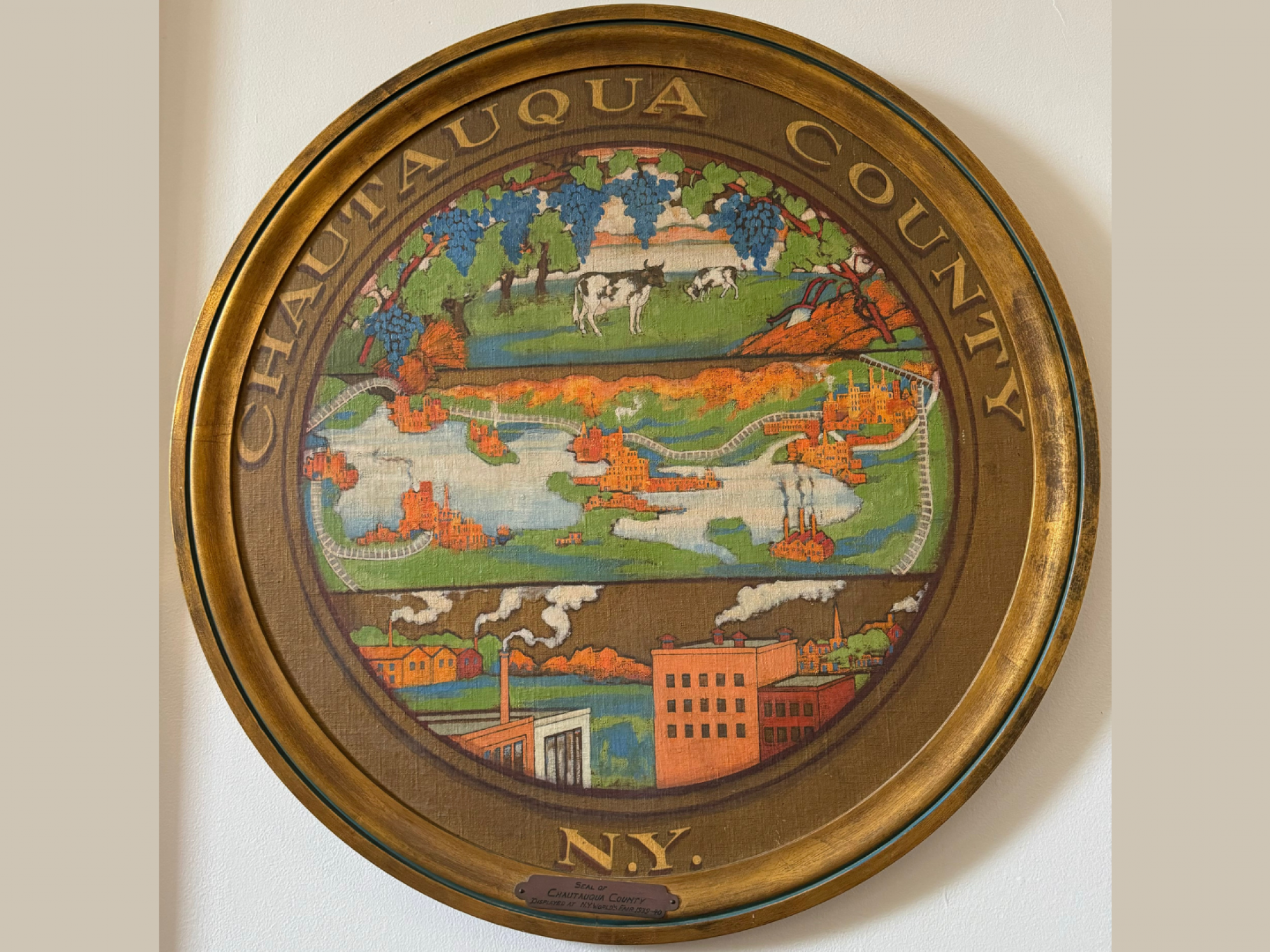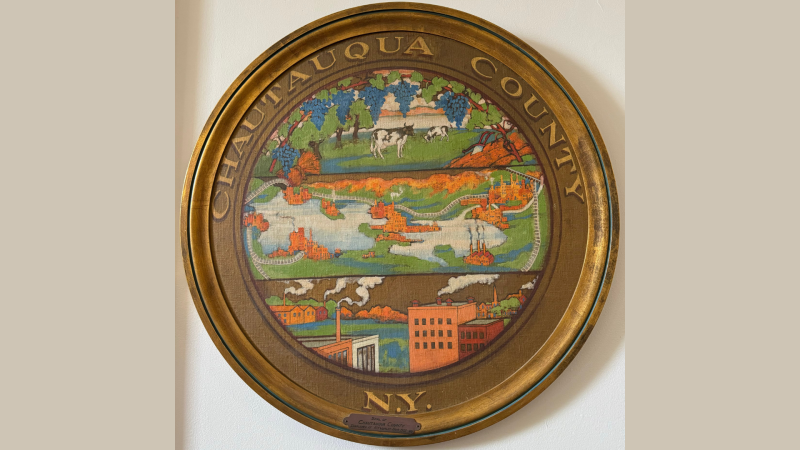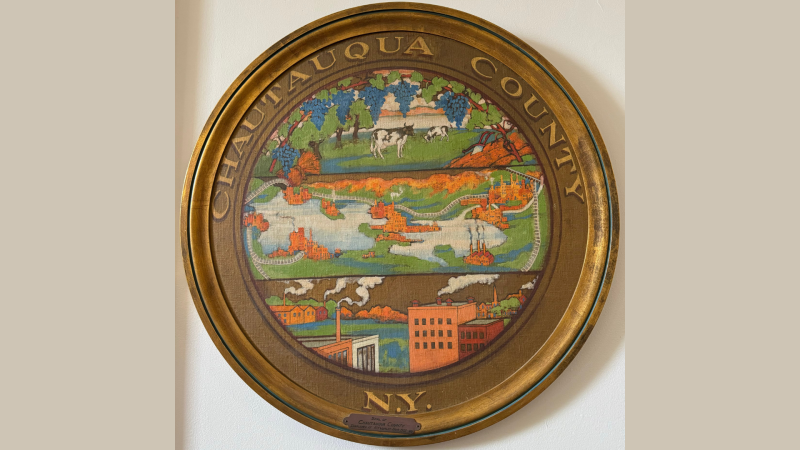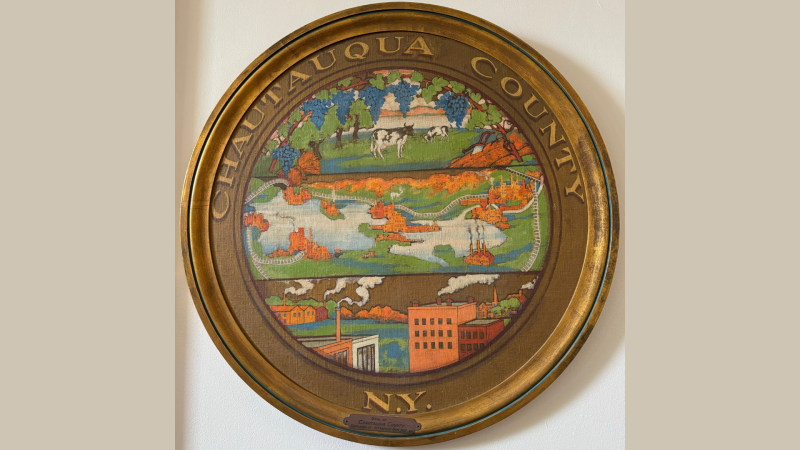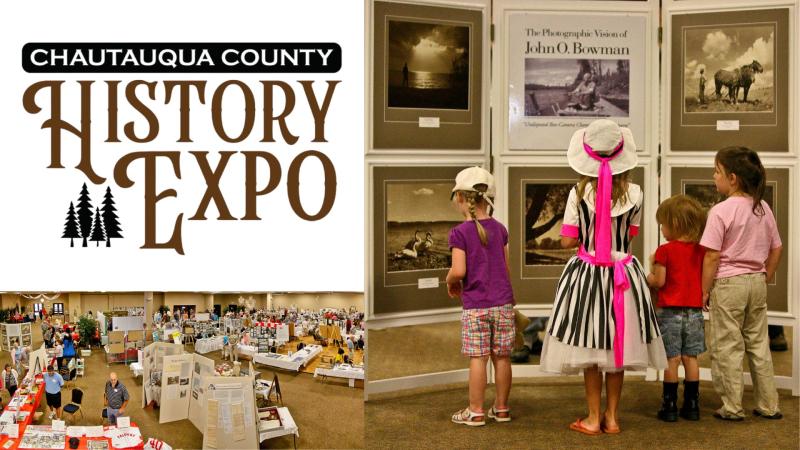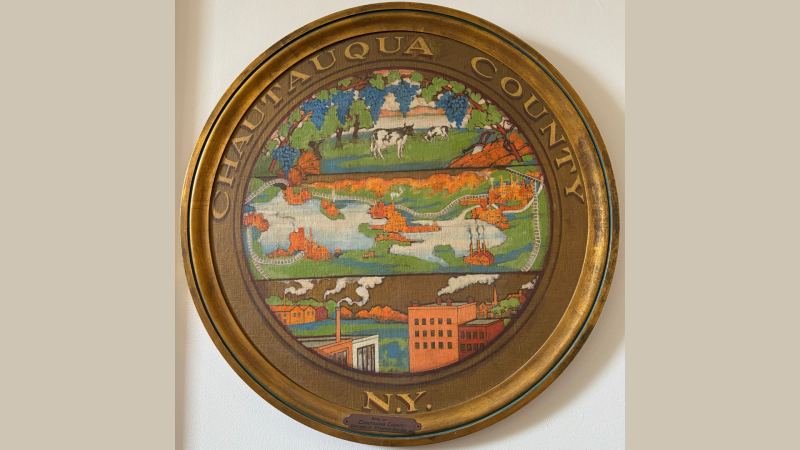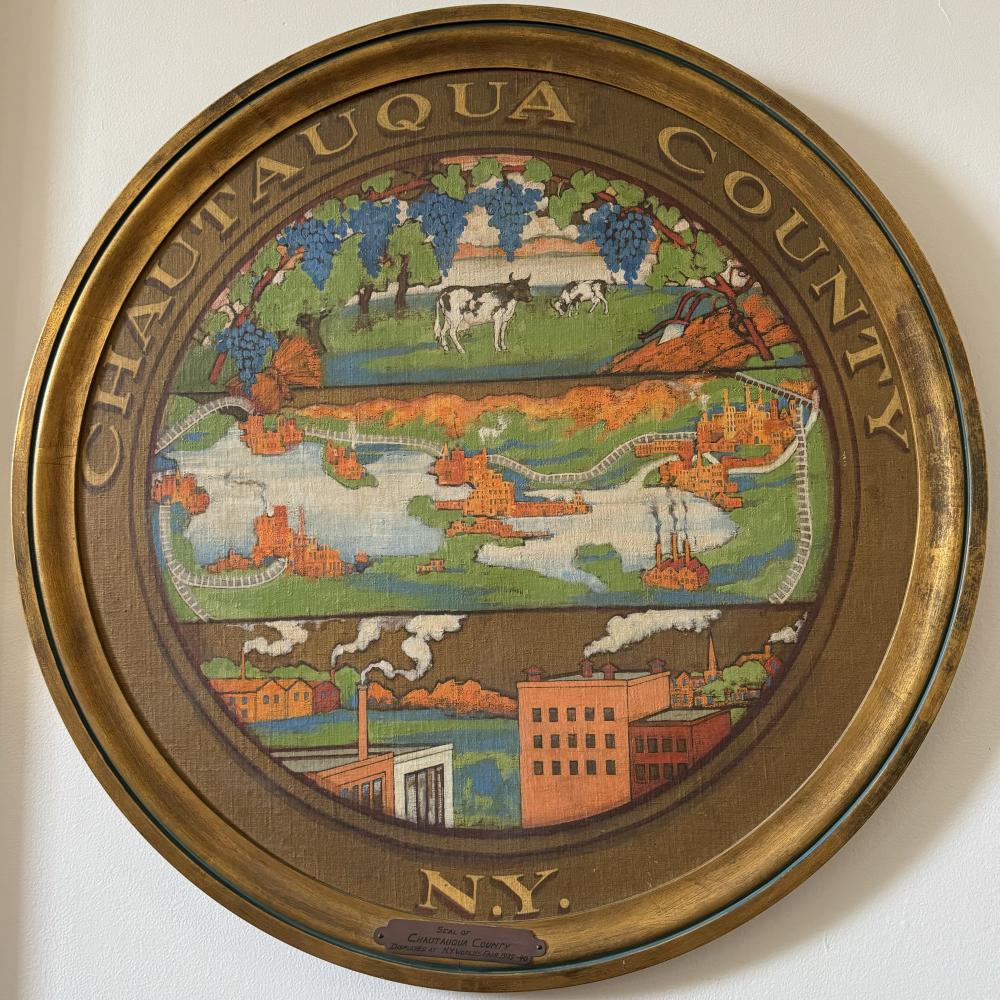
(Seal of Chautauqua County displayed at the New York World's Fair 1939-1940.)
Research by Norman Carlson, Chautauqua County Historian
This week from December 22 to 28 marks a series of significant events in Chautauqua County’s history. From cultural milestones to devastating accidents, these moments offer a glimpse into the region’s vibrant past.
December 22
- 1927: Frewsburg’s Jesse Martin played the dulcimer at a Henry Ford dance in Dearborn, Michigan. Martin played the hammer dulcimer, a northern folk instrument that differs from the Appalachian mountain dulcimer. This event highlights the county’s role in the folk music tradition, especially as Chautauqua County was a leading center for hammer dulcimer manufacturing in the 1850s.
- 1939: Samuel L. Willard, Jamestown’s last Civil War veteran, passed away. His death marked the end of an era for the county, as many locals honored his service.
- 1970: Demolition began on the Broadhead Building on South Main Street in Jamestown as part of the urban renewal project. This was one of the early steps in transforming the city's downtown.
- 2006: In Cherry Creek, authorities seized 200 fighting birds, underscoring the county's commitment to animal welfare.
December 23
- 1835: A banquet at Armstrong's Hotel in Fredonia celebrated the proposed city of Van Buren, a speculative venture on Chautauqua’s Lake Erie shore. The financial bubble surrounding this and other projects eventually burst in 1836, leading to the Panic of 1837.
December 24
- 1792: Robert Morris deeded land to the Holland Land Company, including much of Chautauqua County and western New York. This paved the way for the Treaty of Big Tree in 1797, where land titles were transferred from Native Americans to settlers.
- 1856: The new dam in Jamestown, which replaced the original built by James Prendergast in 1812, required a break and repair, a testament to the growing infrastructure of the town.
- 1872: The county’s worst rail disaster occurred at Prospect Station near Mayville, where 32 people tragically perished.
- 1898: An influenza epidemic hit Jamestown, affecting many residents during the winter holiday season.
- 1949: WDOE, a radio station in Dunkirk, went on the air, becoming an important source of information and entertainment for the region.
December 25
- 1808: Joseph Thayer, the first person to drown in Chautauqua Lake, marks an early tragedy in the area’s history.
- 1852: The First Freewill Baptist Church of Chautauqua Hill was organized, contributing to the region’s diverse religious landscape.
- 1866: The first train arrived in North Clymer, marking a significant expansion of the Cross Cut Railroad.
- 1873: The Weeks House opened to the public in Brooklyn Square, Jamestown, eventually being renamed the Humphrey House until its closure in 1932.
- 1999: The Islamic Center in Jamestown opened its doors after being organized in 1984, fostering a new cultural and religious community in the area.
December 26
- 1897: The Dunkirk Post Office was robbed, one of the many criminal incidents that punctuated the county’s history.
December 27
- 1817: The Universalist Society of Ellicott was organized, contributing to the area’s early religious movements.
- 1907: Thule Lodge #127 of the Vasa Order of America was founded in Jamestown. The lodge continues to be an important community organization today.
- 1912: Countess Primo Magri, formerly Mrs. Tom Thumb, visited Jamestown. Tom Thumb and his wife were famous midgets promoted by P.T. Barnum.
- 1924: The first radio station in the county, 8 DIS (later WJTN), went on the air, revolutionizing the way information and entertainment were shared in Chautauqua County.
- 2004: The replacement parking ramp on North Main and Second Street in Jamestown opened, improving access to downtown services and businesses.
December 28
- 1854: Susan B. Anthony visited Mayville, marking her first trip to Chautauqua County. She would go on to become a leading figure in the women's suffrage movement.
- 1884: The first game of polo was played in Jamestown, adding a new and exciting sport to the region’s cultural fabric.
- 1891: The Wonderland Museum opened in the Warner Block in Jamestown. This private museum would provide a unique collection of exhibits to the public for years to come.
- 1995: A property dispute over Rails to Trails in Carroll ended in favor of the farmer. The original deed specified that if the land was no longer used for railroad purposes, it would revert to the farmer.
These events, ranging from the arts and culture to significant accidents and developments, paint a vivid picture of the many milestones that have shaped Chautauqua County over the centuries. As we move through this holiday season, we honor these moments that have defined our past and continue to influence our present.

